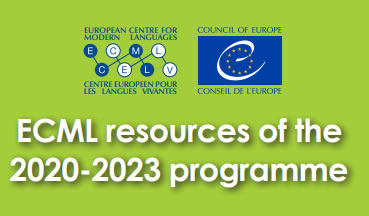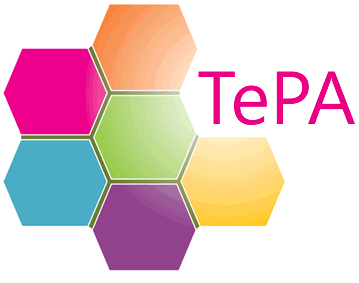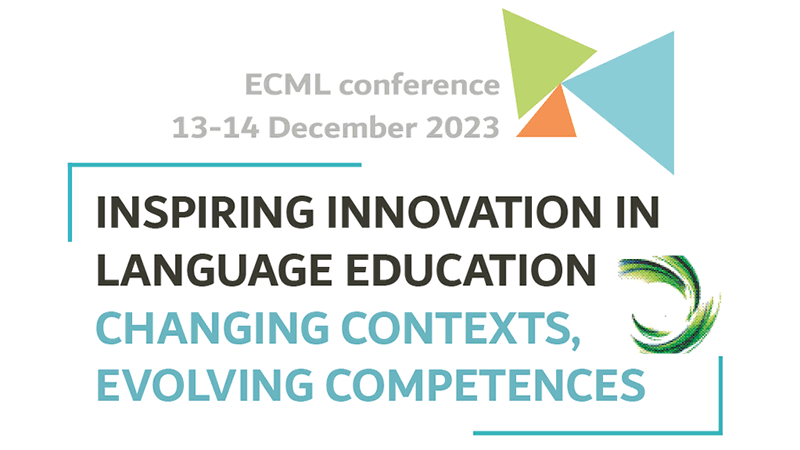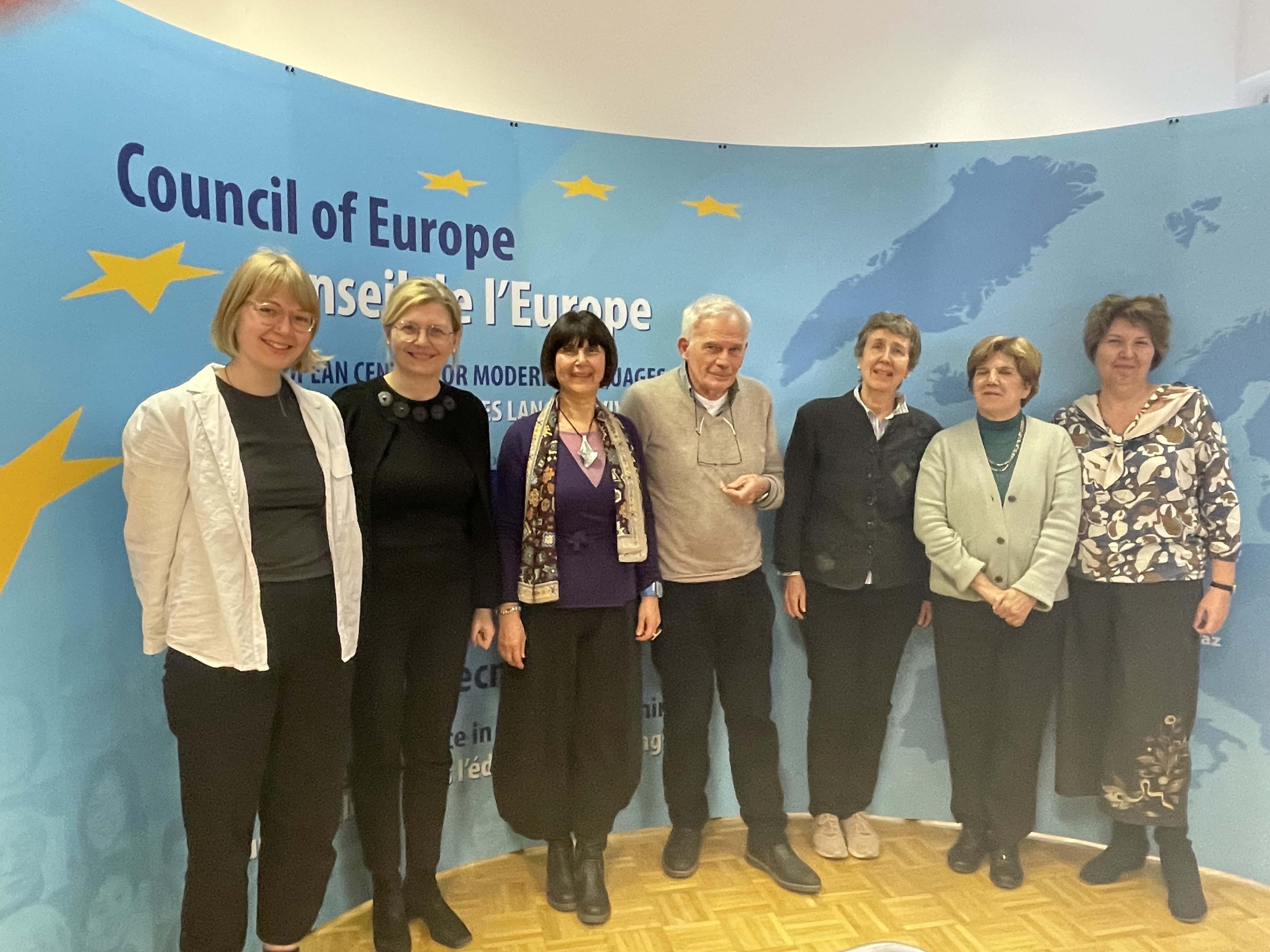Latest articles
28.03.2025
“Inspiring innovation in language education” - through a wealth of new resources

The European Centre for Modern Languages (ECML) of the Council of Europe is dedicating this special issue of its European Language Gazette to the launch of the resources resulting from its programme “Inspiring innovation in language education: changing contexts, evolving competences”. From 2020-2023, nine projects addressed the themes of: formative assessment in early language learning and for newly arrived migrant children, languages in support of digital citizenship and other transversal skills, the CEFR Companion Volume and linguistic mediation, CLIL in languages other than English, neighbouring languages in cross-border vocational training, teacher competences for pluralistic approaches. These issues were identified by member states as priority areas when initially establishing the programme.
We encourage you to use these innovative resources, to adapt them to your respective contexts, and to share them within your networks, colleagues and institutions who may benefit from them.
A number of the resources are also featured within the Centre’s current training and consultancy activities – where member states can request national workshops on themes of ECML expertise – with the workshops customized according to the specific context.
Table of contents
“Inspiring innovation in language education” – through a wealth of new resources
Launch of new resources
E-Lang Citizen – Digital citizenship through language education
TePA – Developing teacher competences for pluralistic approaches – Tools for teacher education
METLA – Mediation in teaching, learning and assessment
Building blocks for planning language-sensitive teacher education
RECOLANG – Resources for assessing the home language competences of migrant pupils
Enhancing language education in cross-border vocational education
CLIL in languages other than English – Successful transitions across educational stages
PALINGUI – Young children’s language learning pathways – Making early language learning visible
VITbox – CEFR Companion Volume implementation toolbox
Quick links
Enjoy this issue: English – French
17.12.2024
New ECML resource website “TePA – Developing teacher competences for pluralistic approaches – Tools for teacher education”
 The European Centre for Modern Languages (ECML) of the Council of Europe is pleased to announce the completion in both English and French of its TePA resource website “Developing teacher competences for pluralistic approaches – Tools for teacher education” (www.ecml.at/pluralisticteachercompetences), an output of the ECML programme “Inspiring innovation in language education: changing contexts, evolving competences” (2020-23).
The European Centre for Modern Languages (ECML) of the Council of Europe is pleased to announce the completion in both English and French of its TePA resource website “Developing teacher competences for pluralistic approaches – Tools for teacher education” (www.ecml.at/pluralisticteachercompetences), an output of the ECML programme “Inspiring innovation in language education: changing contexts, evolving competences” (2020-23).
This website contains a rich variety of resources for teacher educators, teachers of languages and other subjects and designers of teacher education programmes by providing two types of tools to aid the development of teacher education programmes and courses: a reference framework of teacher competences for pluralistic approaches and sequences of tasks for teacher education.
The tools proposed on this website complement the Framework of Reference for Pluralistic Approaches to Languages and Cultures (FREPA, 2012). FREPA outlines the competences that learners need to develop in the course of plurilingual and intercultural learning, while TePA focuses on teachers' competences for using pluralistic approaches in their teaching in the context of plurilingual and intercultural education.
Faced with the current challenges in language education, particularly in an increasingly diverse and interconnected world, the resources and ideas on this site will provide teachers and teacher educators with the inspiration and tools they need to embrace linguistic and cultural diversity in the classroom, fostering inclusive and enriching learning environments for all learners.
TePA flyer: English – French
11.12.2023
Final conference of the 6th medium-term programme 2020-2023 (13-14 December 2023, Graz, Austria & online)
“Inspiring innovation in language education: changing contexts, evolving competences” – Join the livestream!

The conference represents the culmination of the four years of work of the ECML’s “Inspiring innovation in language education: changing contexts, evolving competences” programme, involving, among others, 9projects, 1think tank, 12offers of training and consultancy (TaC) and a series of initiatives developed with the support of the European Commission.
The conference is aimed at all language education professionals and in particular at ECML stakeholders, policy makers and persons with a professional focus on the practice of language education (curriculum development, teacher education, material design…).
The programme involves plenary presentations, speeches, a round table, a series of smaller workshops for the presentation and discussion of programme outputs and outcomes as well as envisaged links to activities in the 2024-2027 programme.
The workshops on the second day of the conference will be organised thematically:
- Language teacher and learner competences,
- Transversal dimension of language education / Competences for life and work,
- Plurilingual and intercultural education,
- Languages of schooling; language in subjects.
Within each given theme there will be a focus on the completed project resources and related TaC activities from the current programme. Presenters will focus on the inspiring and innovative aspects of their TaC activity/new resources and will consider how the different approaches and materials presented in their thematic session complement one other.
This will also be an excellent opportunity to get a preview of the new ECML programme “Language education at the heart of democracy” (2024-2027).
In order to ensure access to a wider audience, the event will be streamed in both working languages (English and French) and the recordings made available on the ECML website.
Conference web page: English – French
Conference programme: English – French
Join the live streaming here – no registration required: English – French
#ECMLCELVconf2023
24.05.2023
ECML project “Developing teacher competences for pluralistic approaches”: expert meeting in February 2023 and project finalisation
The project team (Ana Isabel Andrade, Brigitte Gerber, Monica Vlad, Anna Schröder-Sura) met in February 2023 together with two of the associate partners (Maddalena De Carlo and Michel Candelier). After the difficult pandemic years, for some it was the first opportunity to actually meet in person!
After ...
- the team's work to identify relevant teacher competences for pluralistic approaches and to create units for teacher education,
- a workshop with 36 participants from all over Europe in 2021,
- the creation of a network of teacher education professionals and
- exchanges between the network and the team on the construction of teacher education tools for pluralistic approaches,
- the piloting of some of these tools by members of the network,
- the creation by some members of the network of units for teacher education,
... the team has now begun the phase of finalising the productions: integrating the feedback received, completing the reference framework of competences, optimistinc the teacher education units, and organising the site that will make these tools available to the public.
Brigitte Gerber, project coordinator

21.12.2022
ECML project “Developing teacher competences for pluralistic approaches” – A look back at 2022: Presentations – exchanges – feedback
2022 was a year marked by many presentations of the project at conferences, colloquia, courses and other meetings relating to research and/or teacher education. The network created following the 2021 workshop also met three times online with the team – in February, April and September. The members of this network, professionals involved in research, teacher education and teaching, have been working on the elaboration of units for the development of teaching competences for pluralistic approaches and exchanging views on them and on their piloting. This work is now in the process of being completed.
A snapshot of the team's work is presented in the Recent Developments section of the project website. It includes:
- a “Questions and Answers” section that presents an overview of this work, specifying what it is about, its ambitions and the main characteristics of the proposed products;
- examples of these products, i.e:
- some of the dimensions that have already been developed in the reference framework of teaching competences for pluralistic approaches
- examples of teacher education units produced by the project team.
There have been many opportunities this year to discuss the project and receive feedback on its outputs in a variety of contexts. The team has thus been able to observe how much interest there is in the project and is currently working on integrating the comments and suggestions received.
Christine Gerber, project coordinator
- ECML project website “Developing teacher competences for pluralistic approaches – Training and reflection tools for teachers and teacher educators” (available in English and French): www.ecml.at/pluralisticteachercompetences
29.04.2022
“Developing teacher competences for pluralistic approaches” – The network continues its work and exchanges
Network meeting participants:
- Team members (and associated partners, if any) who participated: Ana Isabel Andrade, Brigitte Gerber, Anna Schröder-Sura, Monica Vlad, Michel Candelier, Maddalena De Carlo, Lukas Bleichenbacher
- 3 February 2022: 23 participants
- 5 April 2022: 27 participants
*****
After a first network meeting on 3 February 2022, the project team and the members of the expert network for the project “Developing teacher competences for pluralistic approaches - Training and reflection tools for teachers and teacher educators” met online again on 5 April to share their work on the two main axes of the project: the identification of teacher competences for pluralistic approaches and the creation of materials for teacher education in this domain.
Among its latest productions, the project team proposed a general introduction providing explanations of the tools being developed in a question-and-answer format and PowerPoint presentations. This is available on the project's web page, along with the parts of the framework that have already been developed and some initial examples of sequences to be used in teacher education.
The team also demonstrated to the participants part of a new training sequence aimed at developing teachers' competences in helping learners to draw on their linguistic repertoires, even when it comes to languages with which the teacher is not familiar.
Members of the network presented various types of work in progress:
- adaptations for particular contexts of materials produced by the team or other participants, e.g. with the aim of encouraging reflection as a tool for developing pluralistic approaches in one's practice, for example in the implementation of integrated didactic approaches;
- innovative materials for teacher education, for example for developing teachers' knowledge of plurilingual approaches, for engaging them in reflection on their own plurilingualism and on how to support their learners in the same kind of approach, for developing their competences in supporting learners' awareness of the link between culture and language, or for taking into account the plurilingualism of learners, for example, in the learning of mathematics.
The exchanges during the meeting led to the initiation of new projects and a clearer approach to others. The production and piloting of training materials by the network members for the development of teaching competences specific to pluralistic approaches will continue over the coming months.
Christine Gerber, project coordinator
14.03.2022
ECML project “Developing teacher competences for pluralistic approaches” (2020-2023): a network in action
After the workshop on 28 and 29 September 2021, a network of experts started to develop and now counts about 40 members, coming from more than 25 European countries, as well as from Canada and Brazil. Some of them took part in the first day of the network meeting on 3 February 2022 – online – to exchange around two lines:
- Information and exchanges on the work of the team:
- Continuation of the identification of teacher competences for pluralistic approaches: in addition to the descriptors already developed for values and principles and for the didactic and pedagogical dimension, new descriptors have been added for communication competences, meta (-linguistic, -communicative, -cultural) competences and competences for professional learning and development. Note that these are all specific teacher competences for pluralistic approaches.
- Materials for teacher education: the team presented new task units, shorter than the first ones (to take into account the feedback received in September) and focusing on the development of attitudes and competences in the dimensions of values and principles, metalinguistic competences and professional learning and development.
Presentations with examples of the team's productions are already available on the project webpage. This page will constantly be up-dated with further project results.
- Organisation of the work of the network: this work aims at creating new teacher education materials for the development of specific teaching competences for pluralistic approaches as well as piloting them. Working groups have formed to collaborate on the development of materials. This collaborative work focuses on, for example, reflection on one's representations of diversity, the development of didactic and pedagogical competences for the design and management of teaching processes using pluralistic approaches, the development of competences in selecting and/or producing materials for integrated didactics, raising awareness of the link between language and culture, guiding reflection in and on action, etc. Other collaborative projects are still in preparation and some members of the network are in the process of organising the experimentation of materials in their working context.
A second part of the network meeting, scheduled for 5 April 2022, will provide an opportunity to share all that will have been carried out by then and to organise further work.
Brigitte Gerber, coordinator, with the project team
08.12.2021
A year marked by exchanges: a workshop and a network
A workshop
A major event for the project took place this year: a workshop bringing together professionals from many countries to discuss the development of teacher competences for pluralistic approaches. The workshop took place on 28 and 29 September at the ECML in Graz and brought together the team, 3 associated partners and 36 participants, half of them online. The discussions were rich, and the feedback showed that the tools the team is developing (a reference framework of teacher competences for pluralistic approaches and materials for teacher education) are perceived very positively. They are seen as resources that can contribute to (better) integrating the plural dimensions in teacher education, and thus to promoting plurilingual, intercultural and inclusive education.
Taking as a starting point some of the teaching competences identified by the team for the implementation of pluralistic approaches, the participants engaged in discussions aimed at the production of new materials for teacher education, in particular concerning the competences they consider to be particularly relevant in their contexts.
A network
Since the workshop, the team has been working in parallel on the development of tools for teacher education and the organisation of a network. This network will bring together some of the workshop participants who wish to continue the work started there, as well as other professionals who wish to collaborate on the creation of new resources for the development of teacher competences for pluralistic approaches and in exchanges on the piloting of materials in their contexts.
The next step is the network meeting which will take place on 3 and 4 February 2022. The team is looking forward to this new opportunity to exchange and collaborate with professionals from different countries and contexts.
Brigitte Gerber, coordinator
- ECML project website "Developing teacher competences for pluralistic approaches – Training and reflection tools for teachers and teacher educators" (available in English and French): www.ecml.at/pluralisticteachercompetences
20.12.2020
"Developing teacher competences for pluralistic approaches" – ECML project developments in early 2021: Teaching competences needed – First teacher education units – Workshop in 2021
The team’s work, in this very peculiar year, was carried out entirely online. The workshop originally planned for December was postponed to 2021 and the team focused its work on the further development of its tools.
Sequences of tasks and scenarios for teacher education which foster the development of competences for pluralistic approaches
The team is creating examples of sequences of tasks that can be directly used or adapted in initial and further teacher education. These ready-to-use units will also be accompanied by scenarios - generic tools designed to support teacher educators to create their own materials.
Definition of the teaching competences needed for the implementation of plurilingual and intercultural education through pluralistic approaches
Having identified a number of specific teacher competences for pluralistic approaches, we are focusing on their interconnection with the taxonomy produced as part of the project "Guide to teaching competences for languages in education", coordinated by Lukas Bleichenbacher in the 2016-2019 programme. The aim is that the work produced by our team will provide a specific complement for pluralistic approaches that fits clearly into this framework. Having finalized the dimension of principles and professional values specific for pluralistic approaches, we are now working on the formulation and organization of the following dimensions: linguistic and communicative, metalinguistic, metacommunicative and metacultural competences, competences related to the use of information and communication technologies, didactic competences, competences necessary for one’s own development, competences to cooperate with other actors in the educational sphere.
The team has also tested dynamic modes of online presentation of the defined competences in a global and detailed way.
We are thus preparing to share and discuss our work with the participants in the workshop to be held in the autumn of 2021, so that we can benefit from feedback on the use they could make of it in their contexts and set up a network that will be involved in the following reflections and productions and in the dissemination of the project.
Brigitte Gerber, project coordinator
- ECML project website "Developing teacher competences for pluralistic approaches – Training and reflection tools for teachers and teacher educators" (available in English and French) : www.ecml.at/pluralisticteachercompetences
08.05.2020
Teaching competences for pluralistic approaches - Tools in the making
What are the teaching competences needed to develop plurilingual and intercultural education through pluralistic approaches? How can they be developed?
These are the questions that the project team is currently working on, with the aim of developing tools for teachers and teacher educators in pre-service or in-service education, as well as for designers of teacher education programmes. The team met online to take stock of the work that has already been accomplished and to further develop it. Starting from a compilation of competency frameworks for teacher education, we are focusing on specific competences for pluralistic approaches (cf. FREPA) and with the aim of organising them in an easily accessible structure. We are also creating other specific tools for the development of these competences:
- scenarios offering structures to be used by teacher educators or curricula designers to build their own teacher education modules;
- teacher education sequences that can be used directly in initial or continuing training or adapted.
More advanced versions of this work will be discussed in a workshop in which participants will be invited to experiment, analyse and give feedback on the potential use of these tools for teacher education in their contexts.
B. Gerber
- Project team: Ana-Isabel Andrade, Brigitte Gerber (coordinator), Anna Schröder-Sura, Monica Vlad.
Associate partner: Michel Candelier.
- ECML web pages dedicated to the project "Developing teacher competences for pluralistic approaches – Training and reflection tools for teachers and teacher educators" (available in English and French) : www.ecml.at/pluralisticteachercompetences